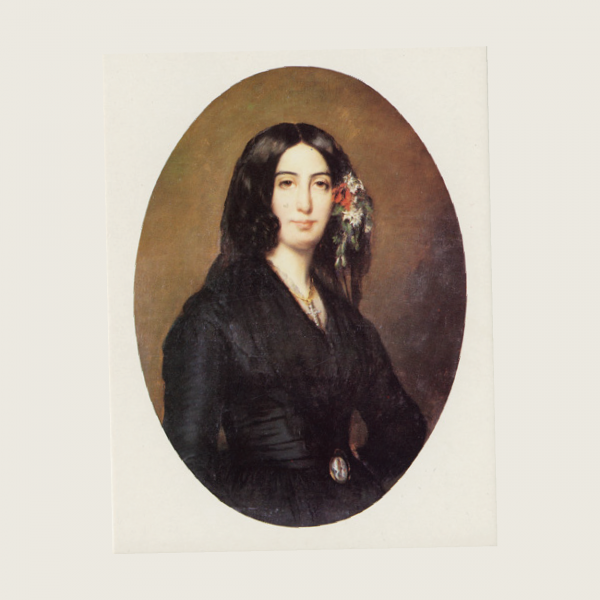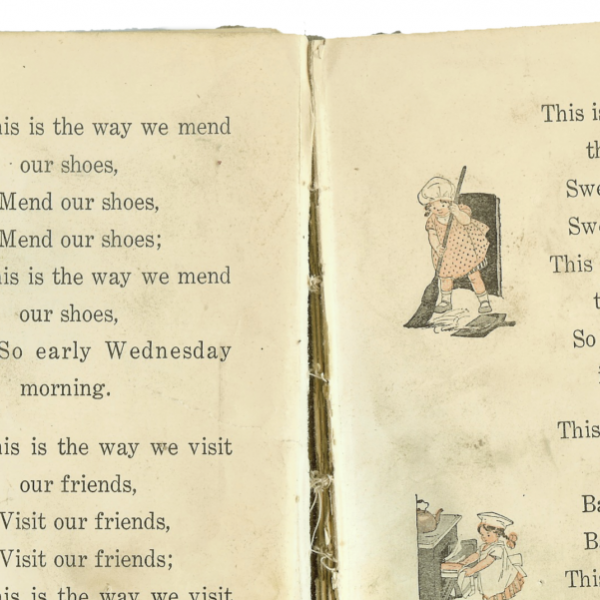Eminent Biography: Cathy Jrade on Delmira Agustini
One day, oddly
fainted on the ground,
I fell asleep on the deep plush textures of this forest . . .
I dreamed divine things! . . .
A smile of yours woke me, it seems to me . . .
and I do not feel my wings!. . .
My wings? . . .
—I saw them melt between my arms . . .
It was like a thaw!
from “Las alas” by Delmira Agustini, translated by Cathy L. Jrade. Copyright © 2012, by Cathy L. Jrade.

Cathy Jrade, credit Lauren Owens
While members of the “Forever 27 Club” have music in common, even before the advent of popular music and rock and roll, lyrics and youthful recklessness had often gone hand in hand. When flirtation with the darker themes of modernity and humanity becomes a primary focus of attention, the elements of tragedy seem to follow closely behind. In her brief life, Uruguayan poet Delmira Agustini (1886 – 1914) explored the worlds of desire and obsession, dreams and eroticism in her work, to achieve a legacy as the first major woman poet of Spanish America. Now, Cathy L .Jrade in her forthcoming book, Delmira Agustini, Sexual Seduction, and Vampiric Conquest, allows us a look at the complexities of Agustini’s writing, her relationship to the father of modernismo, Rubén Darío, and the tragic lovers’ fate that befell her.
Cathy L. Jrade—
While every student of Spanish American modernismo is familiar with the name and works of Delmira Agustini, critics have only begun to examine the complex web of references and images that fill her writing. Most readers know her as the first major woman poet of modern Spanish America and would identify her with an aggressively sexualized discourse and oneiric visions of vampires, insects, death, and dying. Yet from a very young age, Agustini was obsessed with writing, and this obsession, more than physical desire or mental anguish, informs her poetry.
My interest in Agustini is long-standing, but it was an experience in the classroom that really started me thinking about what Agustini was able to accomplish in her verse. One day when teaching her visionary poem “Las alas,” I tried to impress upon my class the devastation of the poem’s final stanzas. The fall to earth and the melting of the wings seemed to me profoundly tragic, but my undergraduates hardly took note of these events. It was not simply that the poet, who had flown so high, who had soared with hope, confidence, and vision, was rendered impotent. The true tragedy was the prosaic ordinariness with which Agustini portrays the descent and the acceptance of its apparent inevitability. To make my point I had the students turn to Rubén Darío’s “Sonatina,” which we had studied earlier. The comparison was striking. The wings in Darío’s poem announced the certainty that he would achieve greatness, that his poet’s voice would be heard now and well into the future, and that female other would silently facilitate his endeavors and empowerment. My class and I began to explore why the same image was linked to two such different outcomes. From that moment I became convinced that Agustini’s verse concealed a broader, more complex story that I had to pursue.
In the course of my research I came to understand Agustini’s profound emotional and artistic attachment to Darío, a creative genius whose work has left an imprint on all later poets and whose brilliance has been the object of my own professional attention for years. I also came to recognize Agustini as a much more accomplished and dynamic poet than has traditionally been acknowledged. Critics have signaled her daring eroticism, her inventive appropriation of vampirism, her morbid embrace of death and pain, and her startling use of dualities and opposites. But what they have overlooked is her obsession with writing. Her poetry reflects a search for an alternate language, an imaginative dialogue with Darío’s magnificent recourse to literary paternity, and a thoughtful and audacious rejection of social and poetic conventions.
Like all her contemporaries, Agustini understood that Darío was the supreme poet of the day. It would be difficult to exaggerate Darío’s preeminence among writers. He has been acclaimed as the innovative and revolutionary poet who, with modernismo, changed the course of Spanish poetry. But his work extends beyond modernismo, the movement he named, defined, and headed. He is one of the great modern poets in any language and certainly the most important poet of the Spanish language since the seventeenth century.
Agustini sets for herself a daunting task. She takes Darío as her poetic other to seduce, to conquer, and, with him, to produce creative offspring. The story of her endeavor appears in her four volumes of verse and is presented in this book. Its protagonist is the most unlikely of young women in the most surprising of contexts. Protected and prodded, infantilized and thrust into the adult world of publications, Agustini is the product of an unlikely combination of factors.
 Delmira was born on October 24, 1886, to Santiago Agustini and María Murtfeldt in Montevideo, Uruguay. Agustini’s father, a young, prosperous merchant, had inherited a sizeable fortune from his parents, who were French immigrants. Agustini’s mother was an Argentinian of German descent known for her strong will and domineering personality. They both sought to provide a propitious setting for the precocious, beautiful young poet.
Delmira was born on October 24, 1886, to Santiago Agustini and María Murtfeldt in Montevideo, Uruguay. Agustini’s father, a young, prosperous merchant, had inherited a sizeable fortune from his parents, who were French immigrants. Agustini’s mother was an Argentinian of German descent known for her strong will and domineering personality. They both sought to provide a propitious setting for the precocious, beautiful young poet.
The family lived surrounded by daily reminders of Uruguay’s considerable wealth and sense of well-being as buildings and plazas in the grand style of European capitals appeared around them. Agustini reaped the benefits of the exciting times into which she was. In an unpublished letter, she claims to have learned to read, write, and even compose verses by the age of three and to have published her first poems at twelve, and these endeavors were encouraged by her parents, who supplied her with a private room as well as the uninterrupted time she needed for her literary pursuits. Her father is known to have recopied her poetry, which she often set down at night and with considerable disorder and abandon.
By 1902 Agustini had begun to publish in La Alborada, a local magazine, and by 1903 she had been placed in charge of its society pages, a task she executed under the fashionable pseudonym Joujou. Because of her youth and her gender, she attracted a fair amount of attention and celebrity. In 1907, at the age of twenty-one, she published her first book of verse, El libro blanco (Frágil). Three years later Cantos de la mañana appeared. From this point forward, she gained ever-greater prestige even as the tensions between her image as la Nena (the young girl) and her increasingly more sexual poetry drew commentary, if not notoriety.
In February of 1913 Agustini published her third volume of poetry Los cálices vacíos. The volume opens with Darío’s words of praise, in which he states, “Of all the women writing poetry today, none has impressed my spirit as has Delmira Agustini, for her soul without veils and her heart of flowers.” As much as he might have wanted to laud Agustini’s work, his tribute is unquestionably mitigated by his language, by his comparing her only to women writers, and by his referring to her as “esta niña bella” (this beautiful girl). In this volume Agustini announced the forthcoming “Los astros del abismo,” a collection that was eventually published in 1924, ten years after her death, as El rosario de Eros.
Despite her success, her independent nature, and the strains that her literary life may have provoked within the context of her more mundane activities, Agustini married Enrique Job Reyes on August 14, 1913, after a five-year engagement. For reasons still not completely understood, Delmira left their conjugal home on October 6, 1913, one month and twenty-two days after their wedding. With the help of the radically new law underwritten by the liberal regime of President José Batlle y Ordóñez, she filed for divorce a few weeks after her return to her parents’ residence.
Agustini’s break with tradition went beyond these events. After separating from and divorcing Reyes, she took him as her secret lover and continued to meet with him in a room that he had rented until, on July 6, 1914, he shot her and then turned the pistol on himself. Agustini died immediately and Reyes died later in the Hospital Maciel. She was not yet twenty-eight.
While her life and death continue to fascinate readers, critics, and creative writers, I find the previously unrecognized breadth of her artistic aspiration to be even more compelling. She sets out to rewrite the language of male authority and female passivity, and her achievements are unparalleled. Her verse becomes a model of artistic reimagining and provides a glimpse into the creative shifts that energize poetic production. Not surprisingly, these groundbreaking endeavors had an enormous impact on the next generation of women writers and beyond. Agustini’s revealing and lasting reformulation of poetic discourse is the focus of my book.
Cathy L. Jrade is Chancellor’s Professor of Spanish and chair of the Department of Spanish and Portuguese at Vanderbilt University. Delmira Agustini, Sexual Seduction, and Vampiric Conquest will be published in July by Yale University Press.



